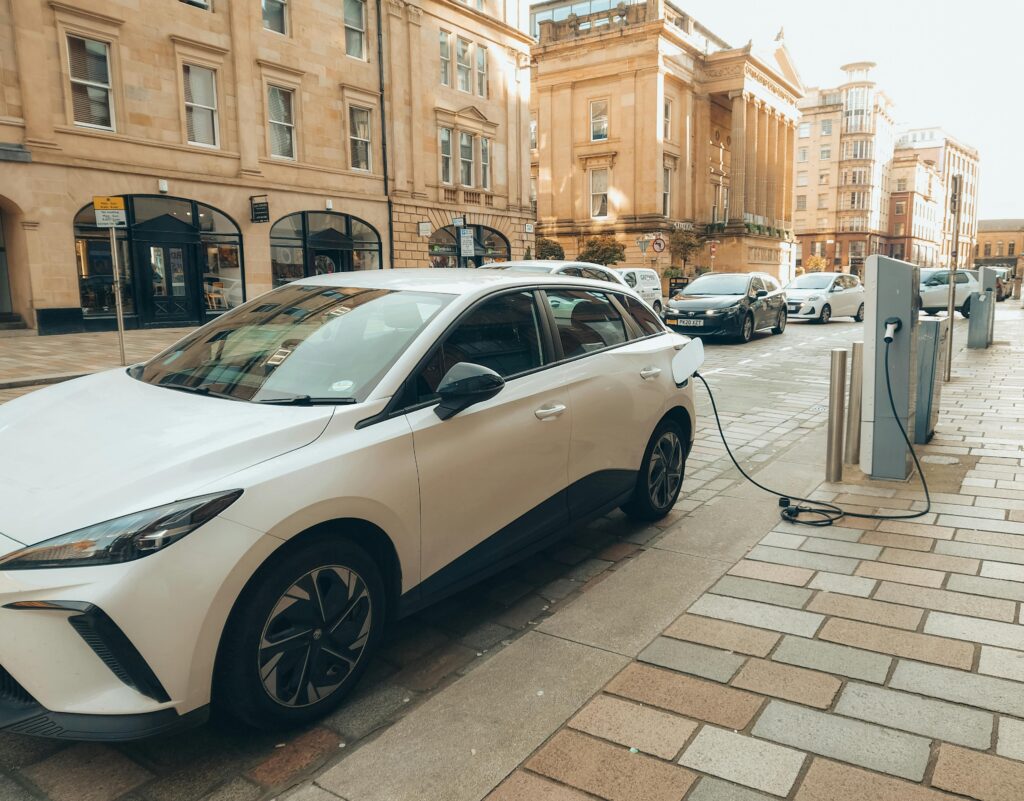As the globe evolves and development occurs , the call for sustainability and eco-friendliness continues to grow. One of the greatest developments that has taken the automotive industry by storm would be the introduction of electric vehicles (EVs). With many searching for solutions to getting rid of gasoline-powered vehicles, EVs have received quite a lot of attention for being environmental friendly, cost-effective and having smart features. This paper will address the many “Advantages of electric cars” and develop a case as to why a lot of modern drivers are switching to electric cars by providing evidence based on existing knowledge and research conducted on this topic.
Table of Contents

1. Environmentally Friendly
When it comes to electric cars, the first ‘Advantage’ that springs to mind ‘Advantages of electric cars’ is the car being environment-friendly. The internal combustion engines’ main sources of fuel are fossil fuels, the most used fuels being gasoline or diesel, which lead to emissions of greenhouse gases like carbon dioxide (CO2). The contribution that the internal combustion engines’ emissions have towards air pollution and global warming is considerable. On the other hand, there are no tailpipe emissions from electric cars. Instead of fossil fuels, which are much more polluting, EVs use electricity. Therefore, these cars lower emissions and have low carbon footprints.
Also, as more electric cars are loaded as more clean energy sources wind, solar, and hydropower become more frequent electricity can be used to charge electric cars as well. If an electric car is charged at home with solar panels, this also improves the ecological advantages of such a car. This shift can reduce the reliance on oil and help in achieving a cleaner, and more sustainable world.
2. Lower Operating Costs
Another considerable “Advantages of electric cars” is cost-saving. The price of electricity is in most cases lower than that of gasoline or diesel, enabling drivers to spend reasonably less on fuel costs, in this case fewer bills. Furthermore, from the perspective of maintenance, electric cars are better than gasoline cars. There are no oil changes to be done, there are fewer components and moving parts that require repairs, and there is less depreciation of critical components such as brakes because EVs depend on regenerative braking components.
Though the primary cost of purchasing an electric vehicle may be high, a good many drivers are able to recoup these costs over time considering the low cost of maintenance and fuel. There are instances where governments assist drivers financially by providing tax credits or rebates for the purchase of an electric vehicle which also helps in recovering the costs of purchasing electric vehicles.
3. Energy Efficiency
The effectiveness of electric vehicles in terms of energy usage is considerably high. In contrast, internal combustion engine (ICE) vehicles lose a significant amount of energy through heat loss while, electric motors harness energy in a more efficient way with a carbon to kinetic energy conversion ratio that is better than the ICE. This efficiency results in higher performance and less energy use which makes EVs to be an intelligent and sustainable option.
4. Improved Performance and Quiet Ride
The performance of electric cars is one of the “Advantages of electric cars” that is, in fact, very often overlooked. This is because of the efficient torque, commonly associated with electric cars, which enables them to accelerate effectively and smoothly. In addition, electric motors lack gears, thus the overall driving experience as compared to the known gasoline-powered car is smoother.
In addition, electric cars do not produce as much noise as gasoline powered cars. This difference in sounds is one appealing factor that allows electric cars to perform well in metropolises where traffic sounds may be a major concern. Most electric drivers love the gentle electric driving experience and this surely adds the pleasure to the trip.
5. Reduced Reliance on Fossil Fuels
Electric vehicles are able to be adopted as the society finds ways to deal with the impacts of using fossil fuels, particularly crude oil. Society can turn to sustainable alternatives by shifting to electric vehicles, decreasing the negative impact of oil use, an exhaustible and harmful resource to the environment. Transitioning to electric vehicles can alleviate problems such as oil leakage, gas emissions, and political disputes over oil trade.
6. Government Incentives and Policies
Tesla has recently experienced an upturn in business largely because of the global drive to increase the use of electric vehicles which has been endorsed by policy makers within many global jean markets. The various incentives for embracing electrical vehicles vary in many markets as some permit tax deductions, offer rebates, low registration charges and carpool lane access among others. Consumers stand to save costs and get easy ways to integrate into city infrastructure by taking such projects, thereby making EV’s even more appealing.
In addition, as policies across the globe integrate more and more goals of carbon emissions reduction, the supporting infrastructure for EVs is constantly expanding. Charging stations are being increasingly placed in public areas, making it more easy to travel over long distances. The increasing charging points network is one of the growing “Advantages of electric cars” for future development.
7. Energy Independence
With electric vehicles, both individuals and countries can be able to achieve some level of energy independence. Instead of utilizing oil that has been imported, electric car drivers can plug in their vehicles and draw power from their grid. Nations which commit resources to building renewable energy in the tyres can ensure that their transport systems will be powered with clean energy as well, which is produced locally. The energy independence enhances rather security issues but also issues of economic viability as well.
8. Innovative Technology and Connectivity
Electric cars integrate advanced technology and features that add value to their driving experience. Certainly, there are many EVs that have driverassistance systems or ADAS, autonomous driving, and smart connectivity, and these perks enhance safety, convenience and comfort of driving on roads.
The deployment of over the air (OTA) updates provides an exciting opportunity to manufacturers to remotely update the software in electric cars to enhance their performance or even add some features so that it is not necessary for the car owner to go to the car dealership for these updates which is one of the key Innovative Features of electric cars and one of the key “Advantages of electric cars”.
9. Resale Value
In contrast to most traditional cars, which usually depreciate in value over time, electric cars – especially those manufactured by reputable brands – usually hold their value and provide a good resale value in times of increased demand. With growing popularity of the technology and demand for greener options, EVs are most likely to provide a good resale value further reinforcing their economic advantages.
10. Health Benefits
Lastly, yet another point, which is often left unmentioned when assessing the “Advantages of electric cars” is the health factor as such. Electric vehicles help to improve air quality and consequently the number of diseases of the respiratory and cardiovascular system is lower. With less pollution in the air, which in turn results in improved public health, healthcare expenses are likely to drop due to lower incidences of illnesses.
Conclusion
The environmental, economical, contemporary, and performance-focused “Advantages of electric cars” are not limited in number or emprise. And as civilization continues to grapple with the climate crisis, electric vehicles will consequently become instrumental in improving carbon and air pollution or promoting energy self-sufficiency. Although still, some issues such as the charging infrastructure as well as the level of range anxiety might be barriers, the impact of technological progress and policies enhancing EV adoption would only supplement their attractiveness over time.
Adopting EVs is not only an ideal; it is a significant move to combat the situation, which can help preserve the environment for the forthcoming generations.

